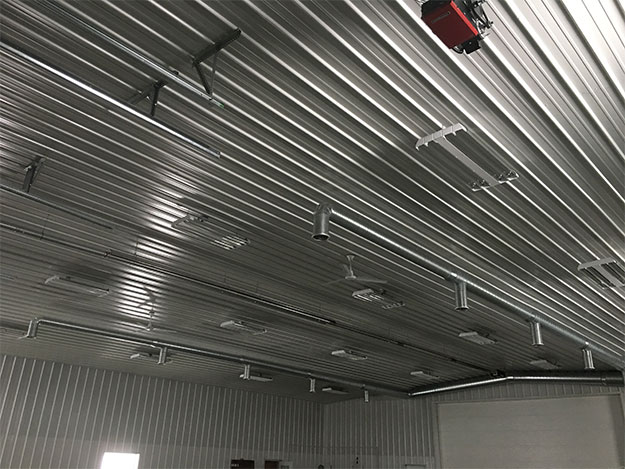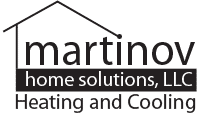August 25, 2021
Categories: General HVAC
Despite being called a geothermal heat pump, this system can both cool and heat your home, and quite efficiently, too. Learn more about the pros and cons of geothermal heat pumps, how they differ from traditional HVAC units, and if they’re right for your home or business.
What is Geothermal Heating and Cooling?
Geothermal heating works to heat your home by circulating temperature-conducting fluid through pipes underground. This fluid collects thermal energy from the sun that is stored underground. The heat collected is then circulated into the geothermal heat pump to be dispersed through the ducts in your home. This process is possible even in the cold winter months because the earth is 55 degrees Fahrenheit below the frost line year-round.
Geothermal heat pumps are also able to produce air conditioning using the same exact system, the process is just slightly different. For a simplified explanation: the heat pump removes heat from the air in your home and transfers it to the fluid that circulates through the pipes underground. Because the underground temperature is lower, the heat dissipates from the fluid and into the ground. Cold air is then returned to your home and circulated throughout.
The Many Benefits of Geothermal Heating and Cooling
You may be wondering, what’s so great about geothermal heating and cooling? How does it compare to traditional HVAC? Installing a geothermal heating system has numerous advantages, here are a few:
Increased Efficiency
Because geothermal AC isn’t working to blow hot air out of your home, but instead releasing it underground, it’s using significantly less energy. As a result, it is a very efficient way to both cool and heat your home.
Lower Energy Bills
Geothermal heat pumps are so efficient, they use 25% to 50% less electricity than conventional heating or cooling systems. Say goodbye to high energy bills! The system is so efficient, it will end up paying for itself in no time.
Saves Space
Because geothermal heat pumps are two-in-one units, they take up much less space than traditional HVAC. You also won’t have to worry about the maintenance and care of two separate units.
Zone Conditioning
Geothermal heat pumps provide effective zone heating and cooling, allowing different parts of your homes to be conditioned to different temperatures.
Lower Maintenance Costs
With all elements of this system either inside your home or buried under the ground, nothing is exposed to the elements. As a result, it will stay in great condition and require little maintenance.
Longer Lifespan
These units last much longer than conventional AC units. The underground piping often has warranties from 25 to 50 years, and the heat pumps can last 20 years or more. This is longer than traditional air conditioning units or furnaces, which typically last about 15 years.
Incentives
Renewable energy programs at the federal, state, and local levels offer incentives for homeowners that go green and upgrade to geothermal units.
Quieter
There are no outside units like with traditional AC, so you don’t have to be worried about a loud fan ruining your backyard relaxation.
Safer
Combustion-based heating systems create carbon monoxide, but geothermal heat pumps do not. You won’t have to worry about carbon monoxide poisoning in your home.
Not Dependent on the Weather
Unlike solar or wind power, geothermal energy doesn’t depend on the constantly changing weather. Get heating or cooling, no matter how sunny or windy.
Sustainable
Because geothermal heat pumps use little to no fossil fuel, they are much better for the environment than traditional HVAC units. Upgrading will help reduce your environmental footprint.
Geothermal Heating and Cooling Disadvantages
Although there are many advantages to geothermal heating and cooling, there are a few things to be aware of before making the investment.
More Expensive Than Other HVAC Systems
Geothermal heating units have a higher upfront cost than normal systems, anywhere from $10,000-$20,000. But, because of its remarkable energy efficiency, it can pay for itself in 4 to 15 years.
Easier to Install in New Builds
Installing a system in a new home can be much easier due to the deep digging that must be done to lay the pipes underground. The pipes can be laid horizontally if the lot allows, but if not, 300-foot holes have to be dug to install them vertically. Retrofitting is possible but requires large-scale excavation that could disturb your landscaping.
Damages Can be Costly
Although uncommon, damage to the underground pipes due to tree roots, shifting soil, or rodents can require costly repairs.
Assessing Your Home or Business for a Geothermal Heating and Cooling System
Geothermal heat pumps can be installed almost anywhere, but here are some considerations to take in that could help determine the type of loop system that’s best for your location.
- Soil and rocks – The type of rocks and soil that are under your property can affect how the piping is designed. For example, soil that transfers heat easily requires less piping to gather heat than soil that doesn’t. Additionally, if there is a lot of hard rock or shallow soil, vertical pipes may need to be installed.
- Ground and surface water – Depending on the depth, volume, and quality, surface or groundwater can be used as a water source for open-loop systems. It can also be used as a repository in closed-loop systems.
- Amount and layout of land – The design of your underground pipes also depends on the layout of your property, the landscaping, underground utilities, and sprinkler systems. Horizontal pipe installations are most common for new builds, but retrofitted systems often call for vertical pipes to save the land around the building.
Trust the Experts at Martinov
Curious about geothermal heating and cooling but unsure if a system is right for your home or business? Let the experts at Martinov Home Solutions help answer any questions. Contact us today for a site evaluation and free estimate!

